March 4, 2020
Search Results for: benefits
March 3, 2020
Too afraid to raise a workplace issue?
by Jayne Smith • News, Workplace
 Over half of American workers feel they have no one to turn to with a workplace issue, claims new research. The survey conducted by OnePoll on behalf of Bambee asked 2,000 employed Americans about their thoughts toward human resources departments and who they would go to if they had an issue in the workplace. Thirty-two percent of those surveyed without a human resources department or representative said they don’t know who they would go to with questions or concerns — or wouldn’t go to anyone at all. (more…)
Over half of American workers feel they have no one to turn to with a workplace issue, claims new research. The survey conducted by OnePoll on behalf of Bambee asked 2,000 employed Americans about their thoughts toward human resources departments and who they would go to if they had an issue in the workplace. Thirty-two percent of those surveyed without a human resources department or representative said they don’t know who they would go to with questions or concerns — or wouldn’t go to anyone at all. (more…)
March 2, 2020
Workers are as important as external stakeholders
by Bianca West • Comment
 At the recent World Economic Forum in Davos, workers around the globe could be forgiven for remaining sceptical at the news that the corporate world now regards them as stakeholders, and as important to their organisations as shareholders and customers. The traditional employee/employer relationship is slowly changing. Where the relationship was once exclusively hierarchical, it is now evolving into more of a partnership. Employees want to be more involved in processes and decisions. Subsequently, teams need to be more collaborative and communicative to drive innovation and creativity. To encourage optimum performance, leaders must learn to coach and encourage, rather than simply direct. (more…)
At the recent World Economic Forum in Davos, workers around the globe could be forgiven for remaining sceptical at the news that the corporate world now regards them as stakeholders, and as important to their organisations as shareholders and customers. The traditional employee/employer relationship is slowly changing. Where the relationship was once exclusively hierarchical, it is now evolving into more of a partnership. Employees want to be more involved in processes and decisions. Subsequently, teams need to be more collaborative and communicative to drive innovation and creativity. To encourage optimum performance, leaders must learn to coach and encourage, rather than simply direct. (more…)
February 28, 2020
Exploring life at the new Siemens Campus in Zug
by Mark Eltringham • Features, Technology, Working culture, Workplace design
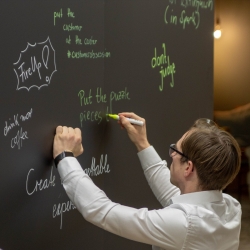 When it comes to creating an office to call home, all of the usual challenges are magnified by several degrees for a company like Siemens. It can’t afford to skimp on the building’s services, green credentials, integrated technology and all-round smartness then hold meaningful conversations on the same subjects with its clients. So, the new Siemens Campus in the Swiss town of Zug has to showcase the best the firm has to offer as well as delivering for the people who work there. (more…)
When it comes to creating an office to call home, all of the usual challenges are magnified by several degrees for a company like Siemens. It can’t afford to skimp on the building’s services, green credentials, integrated technology and all-round smartness then hold meaningful conversations on the same subjects with its clients. So, the new Siemens Campus in the Swiss town of Zug has to showcase the best the firm has to offer as well as delivering for the people who work there. (more…)
February 27, 2020
New initiative aims to help people reconnect with the outside world
by Neil Franklin • News, Wellbeing
 Following the recent report outlining the mental health benefits of spending time outdoors, The National Trust has published its own research on the wellbeing impacts of the natural world in partnership with the University of Derby, which shows those with an active ‘engagement’ with nature enjoy significant health benefits and are more likely to address environmental issues. The research has prompted a new initiative focussed on a series of activities that will help people engage more with their natural surroundings. This includes a new weekly guide to every day nature connection and a public awareness campaign, including billboards by roads and in railway stations, on the first day of spring. (more…)
Following the recent report outlining the mental health benefits of spending time outdoors, The National Trust has published its own research on the wellbeing impacts of the natural world in partnership with the University of Derby, which shows those with an active ‘engagement’ with nature enjoy significant health benefits and are more likely to address environmental issues. The research has prompted a new initiative focussed on a series of activities that will help people engage more with their natural surroundings. This includes a new weekly guide to every day nature connection and a public awareness campaign, including billboards by roads and in railway stations, on the first day of spring. (more…)
February 26, 2020
New technology expected to drive jobs growth
by Jackie Le Poidevin • News, Technology
 Two thirds of UK business leaders expect developments in technology to lead to an increase in the number of permanent jobs created this year, a survey has suggested. The South West and Wales region is the most confident about the impact of new technology, with nearly three quarters of businesses anticipating jobs growth, compared to 56 percent in the least optimistic region, the North of England. (more…)
Two thirds of UK business leaders expect developments in technology to lead to an increase in the number of permanent jobs created this year, a survey has suggested. The South West and Wales region is the most confident about the impact of new technology, with nearly three quarters of businesses anticipating jobs growth, compared to 56 percent in the least optimistic region, the North of England. (more…)
February 25, 2020
Most workers say spouse could not explain their job
by Jackie Le Poidevin • News, Wellbeing
 A problem shared may be a problem halved but, according to a new report, many UK office workers can’t discuss work with their nearest and dearest without them switching off. The survey by CWJobs claims couples are more likely to know the PIN to their partner’s phone (40 percent) or who their favourite band is (38 percent) than understand what they do for a living (30 percent). Three quarters of the workers surveyed said their spouse could not explain their job to another person. (more…)
A problem shared may be a problem halved but, according to a new report, many UK office workers can’t discuss work with their nearest and dearest without them switching off. The survey by CWJobs claims couples are more likely to know the PIN to their partner’s phone (40 percent) or who their favourite band is (38 percent) than understand what they do for a living (30 percent). Three quarters of the workers surveyed said their spouse could not explain their job to another person. (more…)
February 20, 2020
New EU AI strategy focuses on ethics
by Jackie Le Poidevin • News, Technology
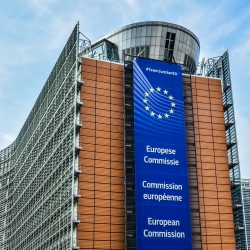 The European Commission has put forward a strategy to promote the development of AI and robotics while putting people first and defending European values and rights. The strategy acknowledges that AI can open up new opportunities for businesses and bring solutions to challenges such as climate change. However, it aims to address the social, legal and ethical impact of new technology. (more…)
The European Commission has put forward a strategy to promote the development of AI and robotics while putting people first and defending European values and rights. The strategy acknowledges that AI can open up new opportunities for businesses and bring solutions to challenges such as climate change. However, it aims to address the social, legal and ethical impact of new technology. (more…)
February 19, 2020
Look beyond the perks and reviews to get a clear view of an employer
by Delaney Kline • Comment
 So, your most recent dining experience wasn’t great. The service was slow, the waiter seemed uninterested, and the wine glasses on the table had red lipstick stains on them. Your first instinct is to go online and share that negative experience with the world. Whether your intention is to blow off steam or warn other patrons that their filet won’t be worth the price, you have a right to share your experience. (more…)
So, your most recent dining experience wasn’t great. The service was slow, the waiter seemed uninterested, and the wine glasses on the table had red lipstick stains on them. Your first instinct is to go online and share that negative experience with the world. Whether your intention is to blow off steam or warn other patrons that their filet won’t be worth the price, you have a right to share your experience. (more…)
February 13, 2020
What performance culture can teach us about motivating employees in the workplace
by Diane Strohfus • Comment, Workplace
 From start-ups to well-established companies, organisations thrive or fail on motivating employees. It’s mission-critical. Motivated employees are easy to spot – they tend to align their purpose to that of the company, are more innovative with their problem-solving and have a greater impact. Organisations must actively work to motivate and engage employees, giving them a sense of purpose. Otherwise, there’s a real risk of the company falling behind the competition and staying there. (more…)
From start-ups to well-established companies, organisations thrive or fail on motivating employees. It’s mission-critical. Motivated employees are easy to spot – they tend to align their purpose to that of the company, are more innovative with their problem-solving and have a greater impact. Organisations must actively work to motivate and engage employees, giving them a sense of purpose. Otherwise, there’s a real risk of the company falling behind the competition and staying there. (more…)
February 12, 2020
Public sector must be more open on AI, says watchdog
by Jackie Le Poidevin • News, Technology
 The public sector must uphold high standards of conduct when adopting AI, a report from the Committee on Standards in Public Life has concluded. The committee does not believe a new AI regulator or major legal change are necessary but it does have concerns about lack of openness, lack of accountability and data bias. (more…)
The public sector must uphold high standards of conduct when adopting AI, a report from the Committee on Standards in Public Life has concluded. The committee does not believe a new AI regulator or major legal change are necessary but it does have concerns about lack of openness, lack of accountability and data bias. (more…)






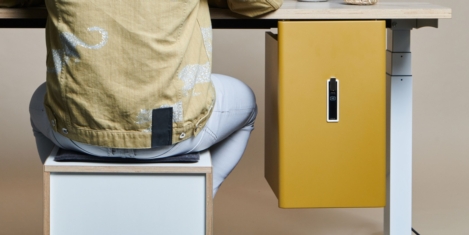
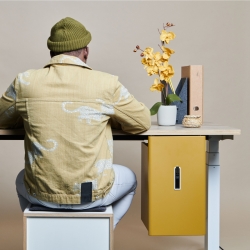


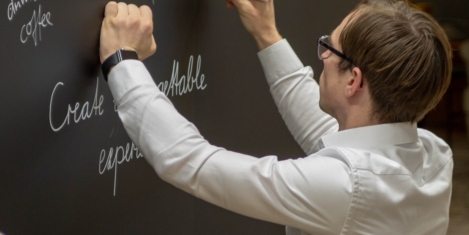



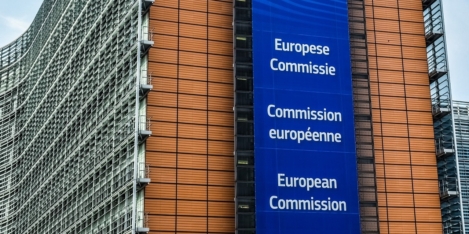

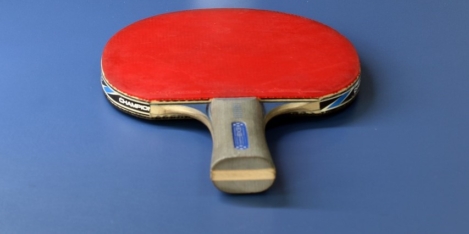
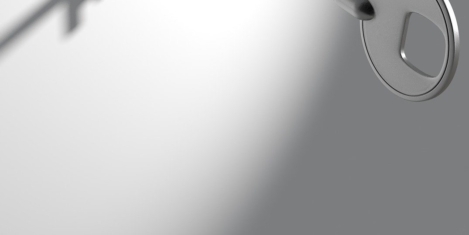









March 4, 2020
Agility may be the key to surviving uncertainty, but what does it mean?
by Victoria Normark • Comment
(more…)